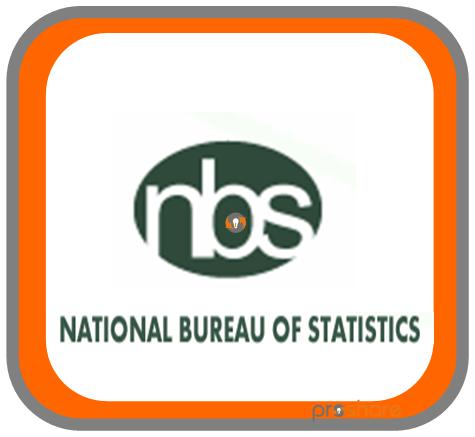Nigeria’s Gross Domestic Product (GDP) growth rate contracted by –6.10 per cent (year-on-year) in real terms in the second quarter of this year, according to the National Bureau of Statistics (NBS).
The decline ends the three-year trend of low, but positive real growth rates recorded since the 2016/17 recession, the statistical agency said on Monday.
According to Nigerian Gross Domestic Product Report – the second quarter result released by the NBS, the decline was largely attributable to significantly lower levels of both domestic and international economic activity during the quarter, which resulted from nationwide shutdown efforts aimed at containing the COVID-19 pandemic.
“The domestic efforts ranged from initial restrictions of human and vehicular movement implemented in only a few states to a nationwide curfew, bans on domestic and international travel, closure of schools and markets etc., affecting both local and international trade. The efforts, led by both the federal and state governments, evolved over the course of the quarter and persisted throughout,” Nigeria’s ThisDay newspaper quoted the NBS as saying.
Reacting to the report, a prominent Nigerian economist and adviser to the Nigerian Government, Mr. Bismarck Rewane, said the latest report on the economy by the NBS should push the country to start “doing some things differently.
Rewane said in an interview with Channels Television on Monday that the decline in the GDP was “surprising and concerning”, but not “alarming at this point in time”.
“The truth is that the economy had its pre-existing conditions in Q1 and the lag between the slow down and the contraction was underestimated by all analysts,” Mr. Rewane said.
He explained that the Nigerian Government’s stimulus plan for the economy was inadequate to cover for the shortfall recorded by the NBS.
“We have a N2.5 trillion equipment to fight a 12 trillion contraction,” he said. “So the limitations and inadequacies and inappropriateness of the tools, compared to the problem we have, is stacked.
“So we are saying that the move from a slowdown into a contraction was more than we expected. The tools that we have at our disposal are inadequate. The stimulus that is required to take us out of this equation is going to be much more than we expected. And we are going to have to take some measures,” he said.
According to Rewane, the country is now faced with a quadrilemma, a situation in which a choice must be made between four undesirable options.
“The first variable we are looking at is recession, negative growth, while the second variable is high inflation, which is almost 13 percent.
“The third variable is high unemployment; even though the unemployment numbers are at 28 percent, we think that it is much more than that. And finally, we have weaknesses in currency.
“So we are having external weaknesses and vulnerabilities, slow growth, high unemployment, and, more than anything else, contraction in economic activity.
“Now we are going to move away from the monetary policy complement that we have, stimulate the economy with greater catalyst, and do some things differently,” he added.
The Nigerian Minister of Finance, Budget and National Planning, Mrs. Zainab Ahmed, had warned earlier this month that the Nigerian economy might slide into recession by the third quarter of this year.
GIK/APA


